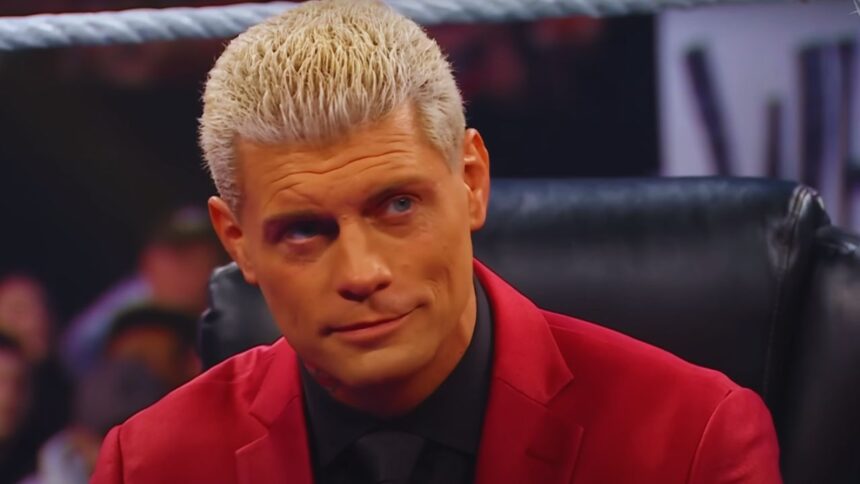In the world of WWE, where character turns are as common as headlocks, John Cena’s enduring role as a babyface stands out as a notable exception. The decision to keep Cena away from a heel persona, despite various pitches and fan speculations, remains a focal point of wrestling discourse. Recently, WWE star Cody Rhodes voiced his agreement with this strategy during a conversation on the Cheap Heat Productions podcast with hosts Peter Rosenberg and Statguy Greg.
John Cena, often hailed as the face of WWE during the PG Era, carved his niche as a perennial hero, steering clear of a heel turn throughout his career. Vince McMahon once considered turning Cena into a Bret Hart-like heel, but these plans never came to fruition. Reflecting on those decisions, McMahon has expressed his pride in keeping Cena as the quintessential good guy, a sentiment echoed by Rhodes in the recent podcast episode.
Rhodes, who currently enjoys a similar babyface status, shared his thoughts on Cena’s career trajectory, suggesting that the decision to maintain Cena’s image was correct. “I think minimally about [the prospect of turning heel.] And I could… you never say never. John [Cena]’s never happened, and I think rightfully so. I think what we got there, we look back at now and realize [it was right not to turn him,]” said Rhodes.
The discussion also touched upon Cena’s ability to captivate and maintain a connection with the audience, traits that have only enhanced his legacy. Rhodes recalled watching Cena’s match against Umaga and noted the undeniable “magic” that Cena brought to the ring—a magic that might have been lost had he turned heel.
Cena’s decision (and WWE’s backing) to remain a hero resonates deeply with fans who have consistently shown their appreciation whenever Cena returns to WWE programming. This ongoing admiration speaks volumes about the success of WWE’s strategy in maintaining Cena’s babyface persona, solidifying his status as one of the all-time greats in wrestling.
Cena’s role extended beyond just his in-ring performances. As the face of WWE, he was pivotal in numerous charitable activities, especially with organizations like Make-A-Wish. Turning him heel could have potentially conflicted with his off-ring persona and activities, complicating his public and charitable engagements.
The podcast episode not only highlighted the strategic decisions behind Cena’s character but also sparked a broader conversation about the impact of such decisions on a wrestler’s career and their connection with the audience. It underscored how a wrestler’s character alignment can significantly influence their legacy and the company’s brand.




